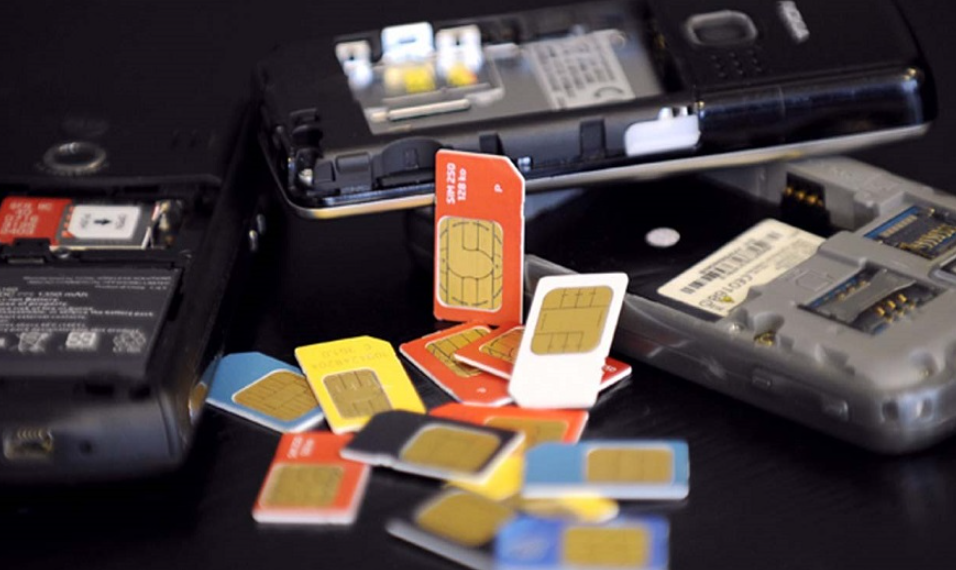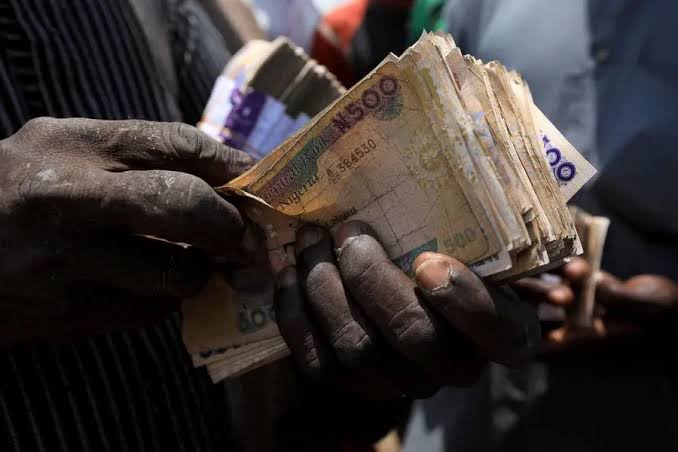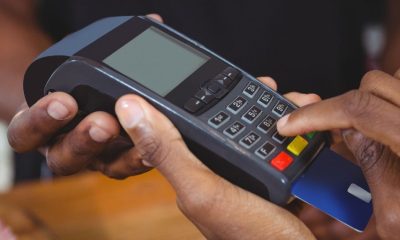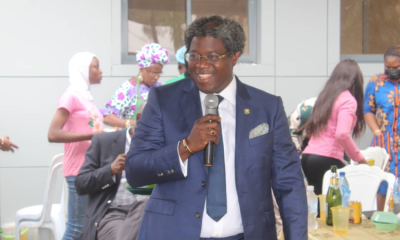Business
Telecom operators begin disconnection of under 18 mobile subscribers

Telecommunications operators in Nigeria have begun the implementation of the age restriction for mobile subscribers as stipulated in the recent guidelines for SIM registration released by the Nigerian Communications Commission (NCC).
This has led to the disconnection of some mobile lines registered by persons under the age of 18. Specifically, MTN disclosed in its half-year 2023 that it began the implementation of this restriction in Q2 this year, which led to a plunge in its subscription database.
“In Q2, we implemented the minimum age requirement for SIM registration from 16 to 18 years, which impacted the run rate of gross connections and active data subscribers in the quarter,” MTN stated.
Two other mobile operators also confirmed to Nairametrics that this is being done in line with the regulatory guidelines for SIM registration.
Mobile subscriptions decline
The disconnections explain why there has been a consistent decline in the country’s mobile subscriptions over the last three months.
Data released by the NCC showed that total active mobile subscriptions across the mobile networks declined by 1 million in April despite new activations. In May, active subscriptions further declined by 2.5 million.
The trend continued in June as the latest data released by the telecom regulator showed a further reduction in connected mobile lines by 1.2 million. This brought the total active mobile subscriptions in the country to 219.7 million at the end of June.
Explaining why it revised the age of acquiring a SIM upward from 16 to 18, NCC in a statement released when the regulation was first announced in October 2021 said it was aimed at protecting minors in the country.
The Commission said this was also in accordance with the Nigerian constitution, which recognizes 18 as the age at which a Nigerian can enter a contractual relationship.
The Commission further explained that SIM acquisition is a contract between service providers and their subscribers, which requires the subscriber to have proper legal status, be of mature mind, and be rational enough to bear certain responsibilities, obligations, and liabilities imposed by a contract.
“The regulation is, therefore, to protect minors. Parents and guardians can acquire SIMs in their names on behalf of their children and wards in which case they assume whatever responsibilities or liabilities arise from the usage of such SIMs, a measure expected to also strengthen national security.
“While the Commission is progressively pursuing digital inclusion for all, the draft proposal is intended to guarantee increased monitoring of children and shield the minors from undue liabilities in line with NCC’s Child Online Protection drive,” the Commission stated.
At a public inquiry on the regulation, which was a draft then, operators had pleaded with the NCC to reduce the age limit to 15 years to allow minors to acquire SIMs.
Specifically, Smile Communications in its submissions to the regulation said that while it understood the need to set an age limit in respect of procuring communications services, Section 59(3) of the Labour Act approves the eligibility of young persons under the age of 14 years to engage in a contractual relationship.
Smile urged the Commission to consider the provisions of the Labour Act and adopt the same in eligibility for SIM ownership.
The operator recommended that the age limit for procuring communications services should be expanded to permit ages 15 and above.
On its part, MTN also urged the Commission to revise the age limit. MTN asked the commission to make the age limit 14 years and above.
The NCC, however, insisted on 18 years and above for anyone who wants to own and register a SIM in Nigeria.
Business
Emirates Airlines return to Nigeria October 1

Emirates Airlines has confirmed its return to operations in Nigeria starting October 1, 2024.
The airline disclosed this via its official X handle Thursday.
“We’re back, Nigeria! We’ll be resuming services to Lagos from 1 October 2024, and we can’t wait to offer unrivalled connectivity to Dubai and beyond to over 140 cities,” the tweet read.
The airline will be operating a daily service between Lagos State and Dubai, and will offer customers more choice and connectivity from Nigeria’s largest city to, and through, Dubai.
Business
Naira appreciates at official window, depreciates at parallel market

The naira depreciated to N1,550 against the dollar at the parallel section of the foreign exchange (FX) market on Wednesday.
The current FX rate signifies a decline of 1.95 percent from the N1,520/$ reported on May 13.
Currency traders, also known as street traders, in Lagos, quoted the buying rate of the local currency at N1,510/$ and the selling rate at N1,550/$ — leaving a profit margin of N40.
At the official window, the local currency appreciated by 4.21 percent against the dollar from N1,520.4/$ on May 14 to close at N1,459.02 on Wednesday.
According to FMDQ Exchange, a platform that oversees the official window, a dollar was sold as high as N1,593 and at a low rate of N1,401 during trading hours.
The daily foreign exchange market turnover was $289.14 million.
On May 14, the Economic and Financial Crimes Commission (EFCC) said foreign missions based in Nigeria use third parties to transact in foreign currencies.
Speaking during an interview, Wilson Uwujaren, EFCC’s acting director of public affairs, said the commission has a task force whose duty is to fight the abuse of the naira and discourage transactions in dollars within Nigeria — which is against the law.
Business
To spur liquidity’ — CBN grants approval in principle to 14 new IMTOs

The Central Bank of Nigeria (CBN) has granted approval in principle (AIP) to 14 new international money transfer operators (IMTOs).
IMTOs carry out cross-border fund transfer services for individuals and entities residing abroad to recipients in Nigeria.
Approval in principle is a conditional acceptance of a proposal subject to meeting other requirements for final approval.
CBN granted the AIP amid plans to double foreign currency remittance flows through formal channels.
Hakama Sidi Ali, CBN’s acting director of corporate communications, spoke in Abuja on Wednesday.
Ali said the approval will help increase the sustained supply of foreign exchange in the official market by promoting greater competition and innovation among IMTOs to lower the cost of remittance transactions and boost financial inclusion.
“This will spur liquidity in Nigeria’s Autonomous Foreign Exchange Market (NAFEX), augmenting price discovery to enable a market-driven fair value for the naira,” she said.
Ali also said the move by the apex bank is a means of reducing the historical volatility in Nigeria’s exchange rate caused by external factors, such as fluctuations in foreign investment and oil export proceeds.
On April 20, Olayemi Cardoso, CBN governor, said the financial regulator collaborated with IMTOs to collectively commit to doubling remittance flows through formal channels into Nigeria.
“We’ve had very productive discussions with leading IMTOs where we collectively committed to doubling remittance flows through formal channels into Nigeria in the immediate short to medium term,” Cardoso said.
He said CBN has also set up a task force to address bottlenecks hindering flows through formal channels.
-

 Entertainment7 days ago
Entertainment7 days agoTems announces release date for her debut album ‘Born In The Wild’
-

 Business1 week ago
Business1 week agoFive levies Nigerians pay for electronic transactions
-

 Entertainment1 week ago
Entertainment1 week agoPortable acquires luxury house in Lekki (Video)
-

 Religion2 days ago
Religion2 days agoAllow RCCG members attend your schools for free, Lege Miami tells pastor Adeboye
-

 Entertainment6 days ago
Entertainment6 days agoEsther Ogbu narrates how she once slept on the floor for seven days to avoid being sexually molested
-

 News1 week ago
News1 week agoLagos state government introduces electronic system for 10-minute approval of building permits
-

 Business2 days ago
Business2 days agoSMEDAN begins disbursement of N5bn loans to SMEs
-

 Entertainment1 week ago
Entertainment1 week agoIbrahim Yekini, Layi Wasabi, Tana Adelana… here are first-time AMVCA nominees



























